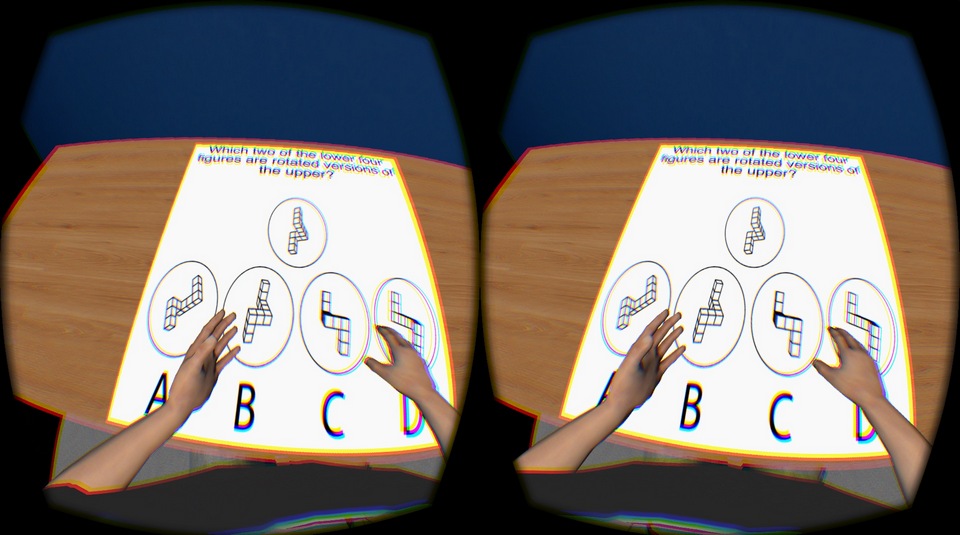Cognition
Pros and Cons for users
- Pro: If given training and time to learn, users with cognitive impairments can become proficient in virtual environments 1
- Pro: The vividness and synchronous interaction of virtual environments can allow users to focus their attention more effectively
- Pro: Students who need more training and time can usually replicate learning artefacts and interactions
- Pro: Virtual environments can be designed to support error-free training, which can assist cognitive disorders 2
- Pro: The distraction offered by Immersive Virtual Reality (IVR) has the potential to diminish pain perception amongst chronic and acute pain sufferers 3
- Pro: Can allow users with Asperger's Syndrome to learn social skills that might be difficult to grasp in real life 1
- Con: The user interface may be difficult to learn
- Con: Virtual world skills may be difficult to acquire
- Con: Input devices such as wands, joysticks and 3D mice may be difficult to master 2
- Con: Some users may experience vertigo
- Con: Users may suffer from motion sickness, due to conflicts between sensory cues or between the virtual environment and what is felt by the body 2
- Con: Users may experience disturbed motor skills after using virtual environments, due to a lag in readaptation to the real world environment 2
- Con: Flashing or moving objects may cause seizures or migraines 1

Cognition Use Cases
- As a user with a photosensitive seizure disorder, I need to avoid three flashes in a second, so I do not have a seizure.
- As a user with a cognitive impairment, I need training and time, so that I can learn the environment.
- As a user with a disability, I need suggestions on how to fix input errors, so I can easily correct mistakes.
References
Learning in Virtual Worlds: Research and Applications
Citation: Gregory, S., Lee, M.J., Dalgarno, B. and Tynan, B. eds., 2016. Learning in Virtual Worlds: Research and Applications. Athabasca University Press.
Summary: contains an interesting chapter on (In)accessible learning in Virtual Worlds. Much of the conclusions are drawn from Second Life but are still relevant to other VR applications
A SWOT analysis of the field of virtual reality rehabilitation and therapy
Citation: Rizzo, A.A. and Kim, G.J., 2005. A SWOT analysis of the field of virtual reality rehabilitation and therapy. Presence, 14(2), pp.119-146.
Summary: Excellent overview focusing on the benefits of virtual reality for rehabilitation and therapy
A rapid evidence assessment of immersive virtual reality as an adjunct therapy in acute pain management in clinical practice
Citation: Garrett, B., Taverner, T., Masinde, W., Gromala, D., Shaw, C. and Negraeff, M., 2014. A rapid evidence assessment of immersive virtual reality as an adjunct therapy in acute pain management in clinical practice. The Clinical journal of pain, 30(12), pp.1089-1098.
Summary: Interesting discussion of the possibility for virtual reality to diminish pain perception by modulating interactions among different neurons